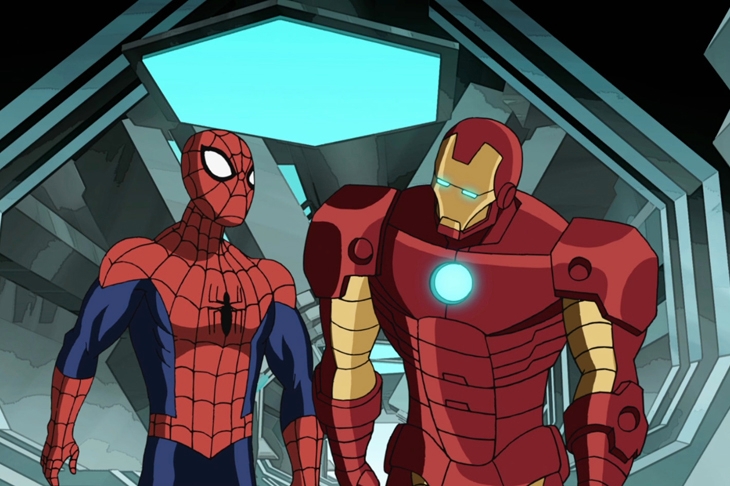Comics aren’t what they used to be. In 1976 I was 11 — the perfect target audience for probably the most subversive, gory and entertaining comic series in British history, the now legendary Action.
The strips, often rip-offs of movies we readers were too young legally to see, were quite outrageously violent. Hook Jaw was about a heroic great white shark who eats everyone. Death Game 1999 was a death sport based on Rollerball. Kids Rule OK was about a post-apocalyptic world which made Lord of the Flies look like Mary Poppins. Hellman of Hammer Force was the second world war seen from the perspective of a German Panzer major. Inevitably, after complaints from the likes of Mary Whitehouse helped to create a moral panic, it got banned. But from the ashes of Action rose the phoenix of 2000 AD whose creators realised they could get away with murder, so long as they set all their stories in the future.
But what does today’s Generation Snowflake have by way of comic-book entertainment? Well, 2000 AD is still going — just — though it’s gone so wearisomely PC that my brother Dick, a loyal subscriber since pretty much Prog One, finally gave up on it last year. The situation in the US is worse, though. So much worse that you may think what I’m about to describe is satire.
Iron Man is now a 15-year-old black girl who might be a sociopath; the Incredible Hulk is a 19-year-old Asian hipster guy; Thor is a woman who is dying of cancer; and Captain America is a full-on Nazi — to show readers how evil Donald Trump is — while his duties as a good person have been handed over to Falcon, who is much more to be admired, obviously, because he is black.
No, really, this is not a joke designed to satirise the leftist, identity politics lunacy which has afflicted so much of the US entertainment industry. This is what has actually happened to the superheroes of those two iconic imprints Marvel and DC Comics. Their characters have all been updated to make them relevant in a more diverse, gender–fluid age where, as rebel comic-books publisher Vox Day puts it, ‘all the princesses know kung fu and none of them need rescuing’.
Except, of course, the demographic that mainly buys comics — young white males — isn’t much interested in having its consciousness raised. It wants strong storylines with memorable characters, like Spider-Man (now Latino) and Punisher (now trans-gender) used to be before the social justice warriors took over the comics industry. Sure enough, the drop in sales reflects this. In 2016, the total annual sales of the top 300 selling comics in the USA was nearly 90 million; the next year it had fallen below 80 million; this year it may well drop by ten million more.
‘What we heard was that people didn’t want any more diversity. They didn’t want female characters out there… anything that was not a core Marvel character, people were turning their nose against,’ Marvel’s VP of sales made the mistake of admitting last year. In the furore that followed he was then sent out to say the precise opposite —that he was ‘proud and excited’ about all the ‘unique characters that reflect new voices’ in the Marvel universe. Well of course. He had a job to keep.
At this point you might be wondering: if diversity is box-office poison, what about Black Panther — which, having grossed nearly $2 billion worldwide, is now the biggest superhero movie of all the time — whose heroes are mostly black? But the mistake, there, is to confuse the very well-put–together film and its all-star cast with the somewhat lacklustre comic (created in the 1960s by Stan Lee, author of Spider-Man but more recently handed on to the feted but worthy Ta-Nehisi Coates). The film flew, the comic bombed, something which has become true pretty much across the board for Marvel and DC. Increasingly, they depend for their profits not on comic sales, but by exploiting the IP of all their older, classic characters (who remain largely white, male and unreconstructed in the movies).
Almost inevitably, this hideous PC takeover (see also: Gamergate, the video games version) has been christened Comicsgate. If you’re not American or you’re not into comics you may feel disinclined to care. But you should, for comics are yet another theatre in the much wider culture wars being waged by the militant left. Free speech, people’s livelihoods and what ought to be the most basic criterion of all art — the pursuit of excellence — are under threat. Talented comic writers and artists deemed insufficiently woke (i.e. left-wing) have been hounded out of work. Comic-book readers have been treated as if they don’t matter.
One of the miseries inflicted on them is that female characters have got less slim and attractive to discourage any unhealthy objectification. Happily this has created opportunities for upstart independents who can’t abide these new rules. One Jawbreakers (not avowedly political: just pure, escapist entertainment from a team including disgruntled Marvel artists and colourists) has already raised more than $300,000 from its crowdfunded launch on IndieGoGo, sending it near the top of the graphic novel charts.
Another Alt Hero, which launches in print this week after a similarly successful crowdfunding campaign, is attracting interest from the movie industry. One of its heroines, Rebel, is a superhero Southern girl who always seems to be losing part of her skimpy, deeply un-PC Confederate flag-themed costume. Not all the US electorate voted Hillary. Good to see at least some parts of the entertainment industry slowly waking up to the fact.







Comments